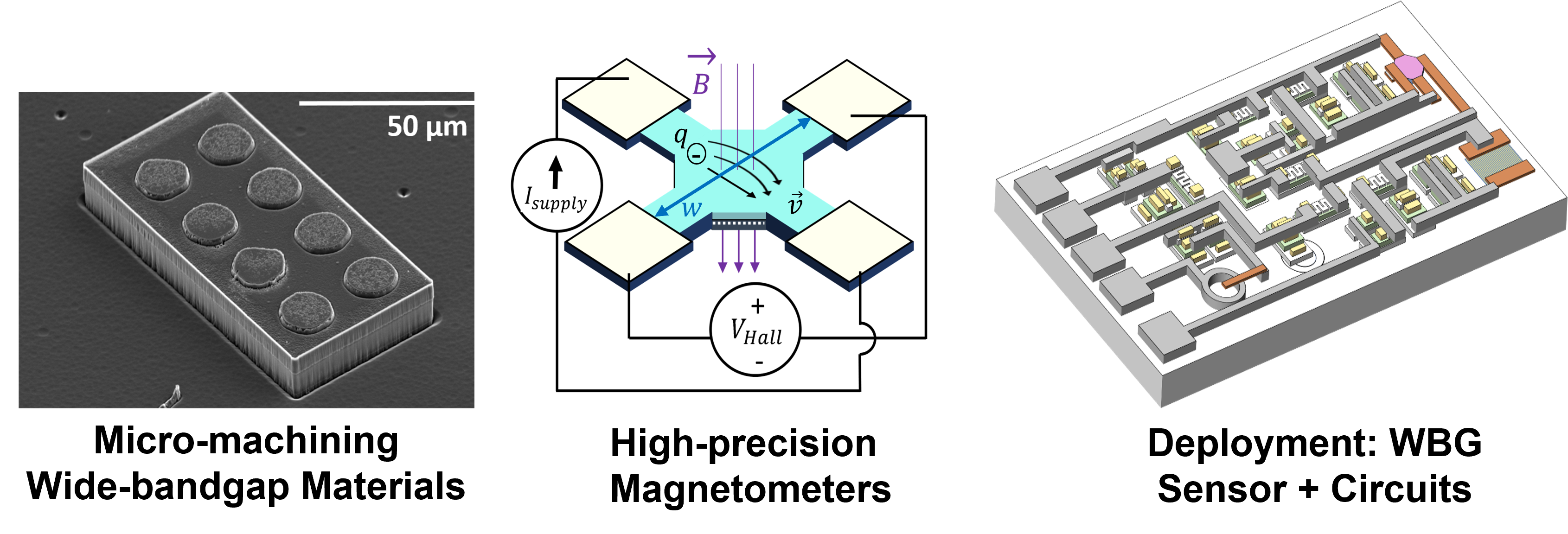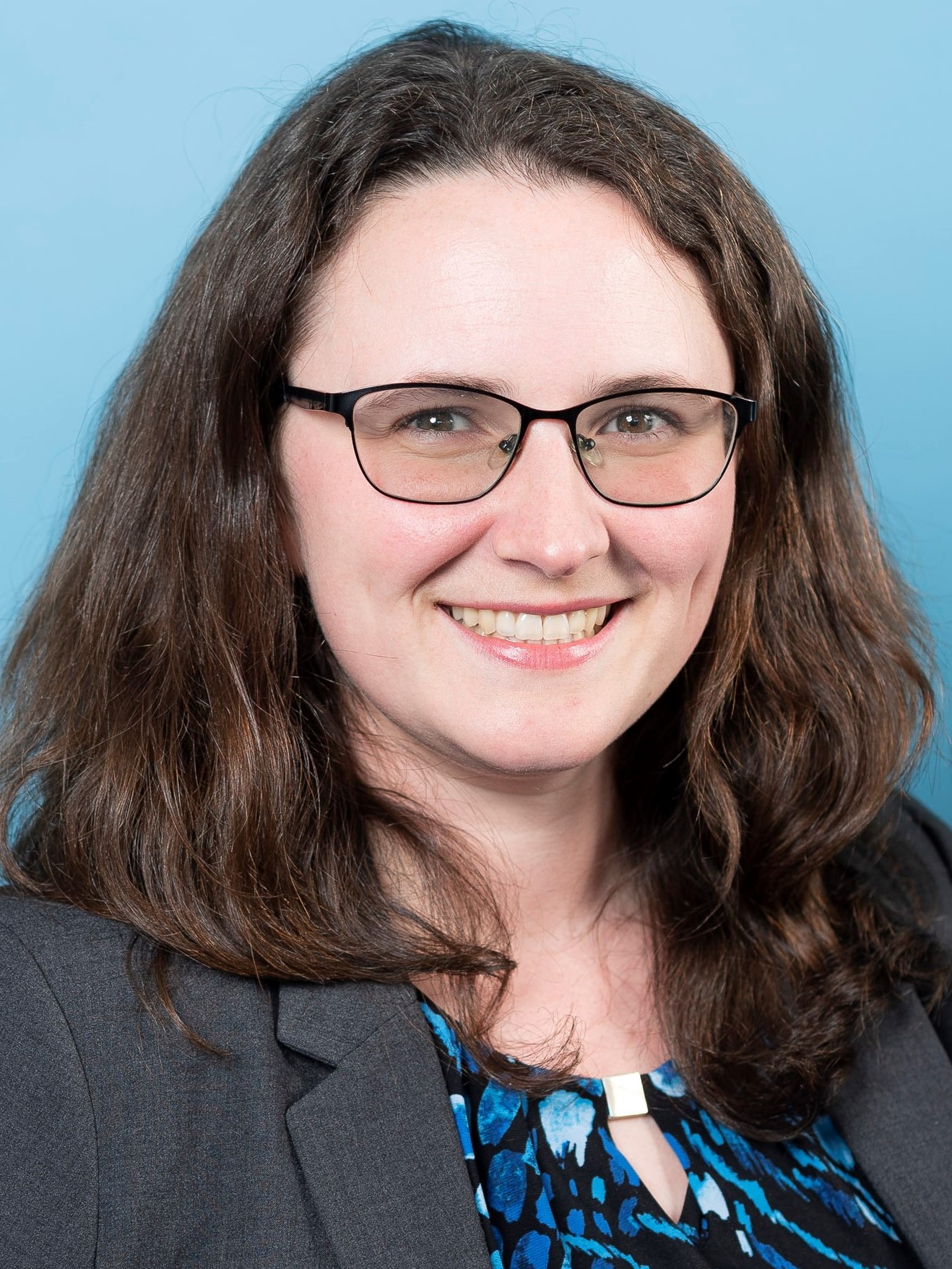MUSIC Lab: Magnetic (Ultra)-Wide bandgap Sensors with Integrated Circuits, led by Dr. Karen Dowling
I am an assistant professor at TU Delft in the school of Electrical Engineering, Math, and Computer Science, in the Microelectronics Department. I am embedded in the Electronics Instrumentation Laboratory, with a focus on integrating wide-bandgap materials for high precision and harsh environment applications with ICs to enable novel microsystems with practical implementations. I have a particular focus on magnetic field sensors that outpace silicon Hall-effect sensors and survive harsher conditions. If your research interests overlap, send me an email!

Key Topics of Interest
- Gallium Nitride, Silicon Carbide, Gallium Oxide, Diamond
- Hall Effect Sensors
- Power Semiconductor Devices
- Microelectromechanical Systems (MEMS)
- Microfabrication
- CMOS Compatibility
About Me
I grew up in Ann Arbor, Michigan, USA, which is home to the University of Michigan. Desiring nicer weather and ocean-front living, I got my BS degree in electrical engineering at the California Institute of Technology in 2013. I then moved up to the San Francisco Bay Area and obtained my MS and PhD in electrical engineering from Stanford University in 2015 and 2019, respectively. My thesis focused on creating high quality magnetometers for extreme environments using gallium nitride, as well as some micromachining techniques in silicon carbide, both wide-bandgap semiconductors. I then was a postdoc at Lawrence Livermore National Laboratory (LLNL), where I gained perspective on RF opto-electronic power devices known as photo-conductive semiconductor switches. I am now at TU Delft as an assistant professor as of August 2022, where I am excited to combine my love of sensors for harsh environments with optically coupled conduction mechanisms to open new avenues for high-performing microsystems, from fundamental research to device development and (someday) deployment.
Site Credit
This site was created using AcademicPages. Source code is available at this repo. Many thanks to R. Krishnapriyan for assistance in getting this page started.
